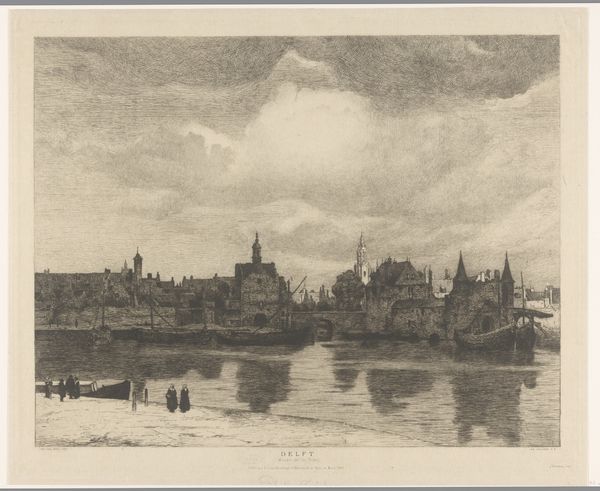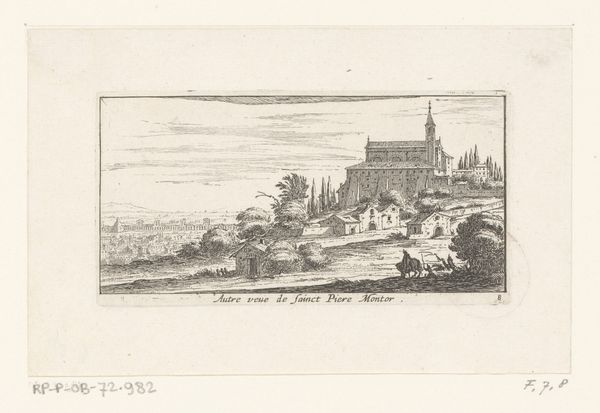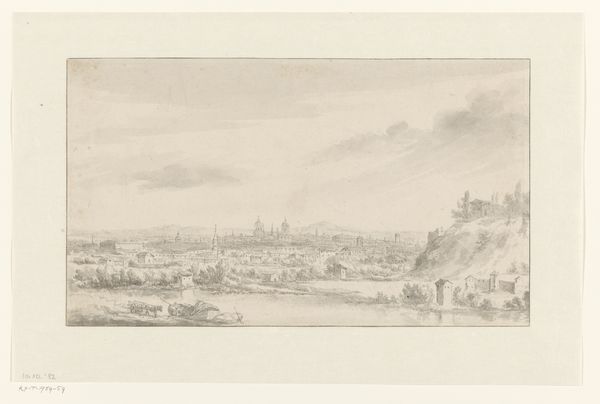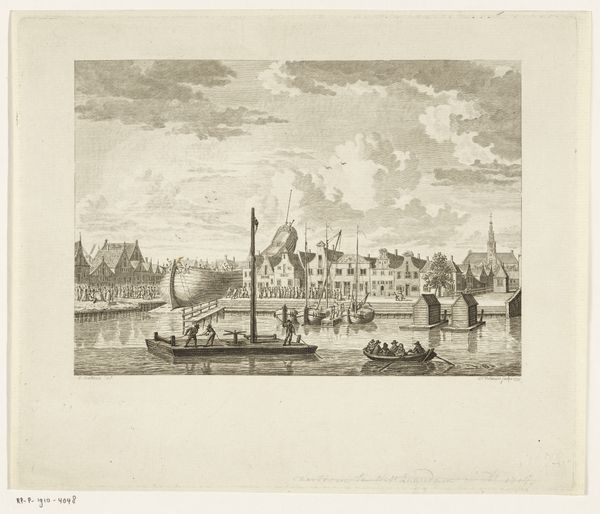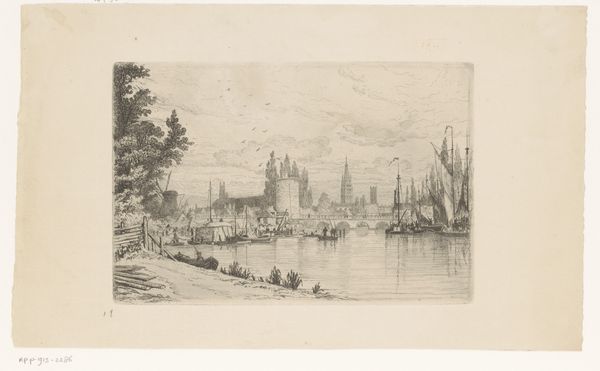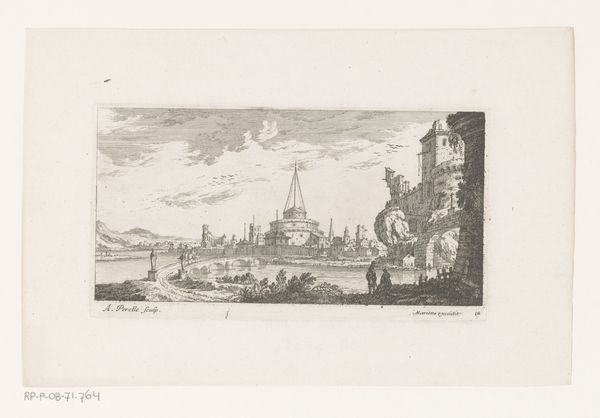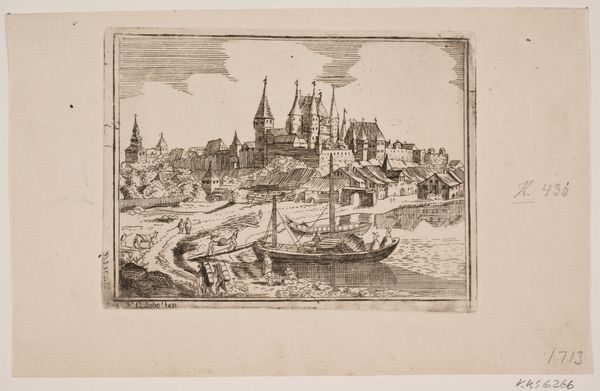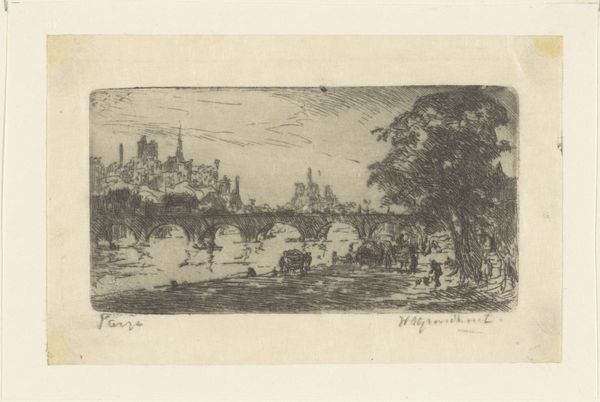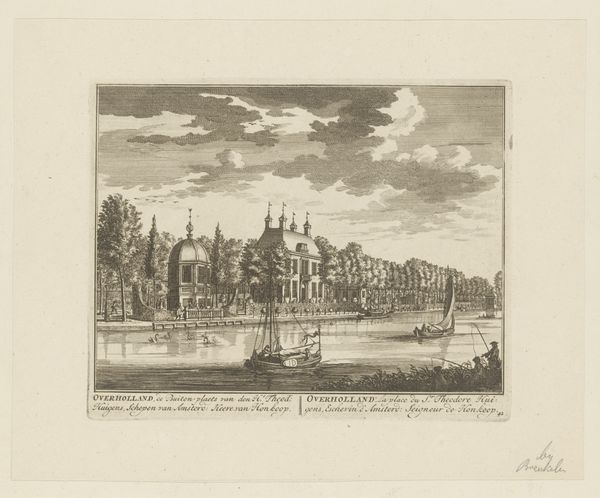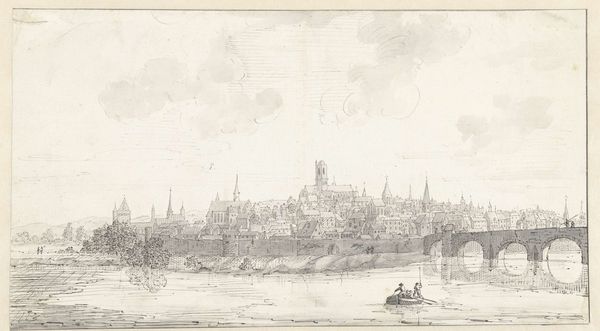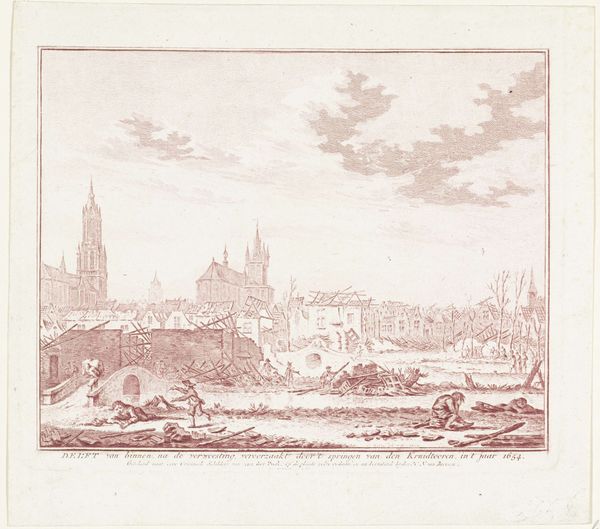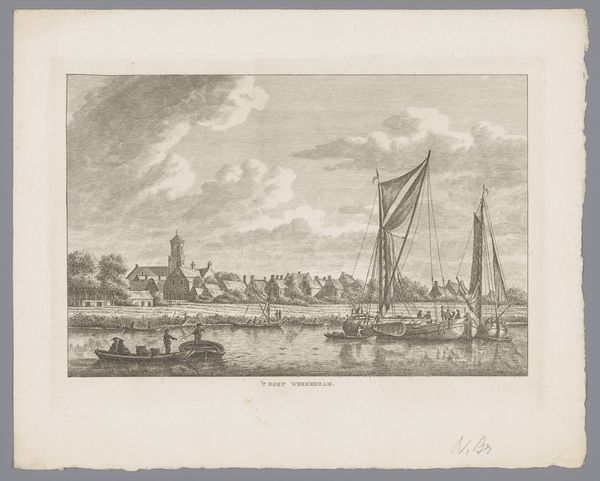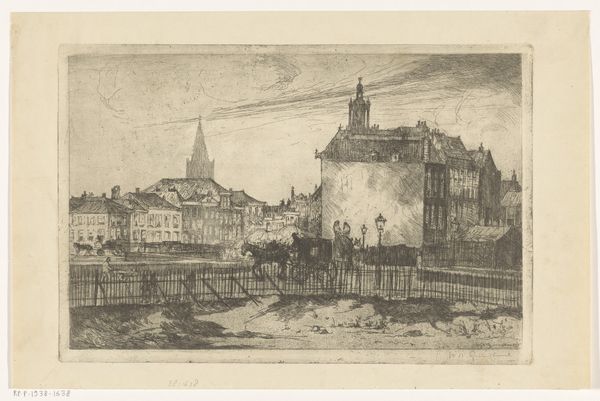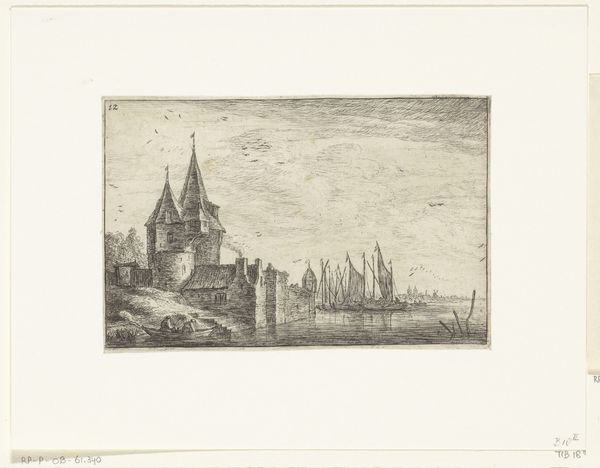
Verwoesting in Delft na de ontploffing van het buskruitmagazijn op 12 oktober 1654 1754
0:00
0:00
simonfokke
Rijksmuseum
print, etching, engraving
#
narrative-art
#
baroque
#
dutch-golden-age
# print
#
etching
#
landscape
#
perspective
#
form
#
line
#
cityscape
#
history-painting
#
engraving
#
realism
Dimensions: height 177 mm, width 218 mm
Copyright: Rijks Museum: Open Domain
Simon Fokke made this etching, showing the ruins of Delft after a gunpowder explosion, sometime in the 18th century. Etching is a printmaking process where lines are incised into a metal plate with acid, then inked and pressed onto paper. The material qualities of the metal, the acid's bite, and the paper's absorbency all play a crucial role. Consider how this contrasts with painting. Instead of directly applying pigment, Fokke used a corrosive substance to meticulously remove material, creating a matrix for reproduction. This process speaks to a culture of documentation and dissemination, driven by the demands of an increasingly literate and mercantile society. The labor-intensive etching process allowed for the creation of multiple copies, making the image accessible to a wider audience, and shaping public memory of the tragic event. Fokke’s choice of etching connects this artwork to a broader history of printmaking, craft, and commercial exchange. It reminds us that artistic expression is often intertwined with technological innovation and the social and economic forces that shape our world.
Comments
No comments
Be the first to comment and join the conversation on the ultimate creative platform.
